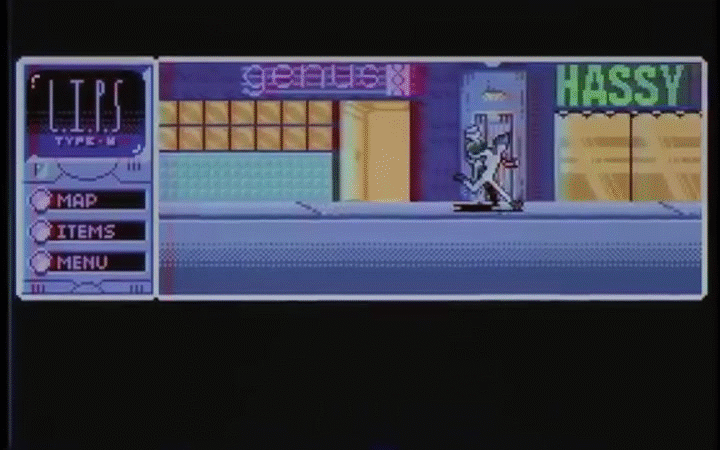The year is drawing to a close, and that usually means lots of year-end “Best Of” lists. I tend not to read these articles, let alone write them; but, I’m making somewhat of an exception this year due to how many noteworthy games were released.
I hesitate to call this “Best Of”, as there is no ranking or rating to the games I’m going to talk about. A few also weren’t actually released in 2015, so to claim a “best of 2015” list would be incorrect. Instead, these are simply games that I played this year, enjoyed thoroughly, and highly recommend.
One other note: these aren’t typical games. In fact, several of them seem to abandon traditional gameplay in favor of story or character development. If that’s not the type of game you enjoy, this list may disappoint.
Okay! Less talk more game!
Life is Strange

Life is Strange seemed to come out of nowhere, and was one of the first games I played in 2015. A brief article on a gaming site and a “Dev Diary” video was all it took to catch my attention despite having never heard of it before.
You play the character of Max Caulfield as she discovers a strange power: the ability to rewind time. This adds an interesting element to the sometimes overused “choose your own adventure” gameplay mechanic. Paired with visions of an impending natural disaster, the first episode has no trouble grabbing your attention.
The game was released episodically throughout 2015, and that format served the game well. What starts as a teen drama with a sprinkling of science fiction quickly veers off into several emotional and truly breathtaking directions, making it one of my favorite gaming experiences this year. That’s not to say it didn’t have its flaws — animation and lip syncing are clunky, and some of the writing and plot points occasionally miss the mark. But those are nitpicks of an otherwise memorable experience.
Life is Strange – $19.99 for all 5 episodes; Windows only
The Talos Principle

Technically released at the end of 2014, The Talos Principle piqued my curiosity, but not enough to buy it right away. When I saw it on sale, I decided to take a chance on it despite not really knowing much about it — all I really knew was that the gameplay was similar to Portal.
I’m glad I took that chance, because the game I discovered was more than just a Portal clone. It certainly had similar puzzles, but the story surrounding it was entirely unique. Without giving too much away, The Talos Principle has a story heavily influenced by philosophy. We all ask ourselves casually what it means to be alive, or what it means to be human — but have you ever dived deep into those questions? This game will force you to do just that, and it’s enough to keep you playing until the end.
Well, almost. The game has a lot of puzzles, and they start to get tiring after a while. Don’t get me wrong: they’re smartly designed, and very few are so challenging that they seem unsolvable. But eventually they feel as though they’re holding you back from the story — especially since most of the puzzles are just a means to an end and don’t directly tie back to any particular plot point.
And there’s a lot of reading. In fact, most of the narrative is delivered through documents stored on computer terminals scattered through the world.
But if those quirks don’t bother you, then a fun and interesting game awaits — just make sure you’re in the mood for a lot of first-person puzzling!
The Talos Principle – $39.99; Windows, Mac, SteamOS/Linux
80 Days

If The Talos Principle isn’t too much reading, then perhaps I could interest you in 80 Days?
I’m guessing that you are at least familiar with the Jules Verne novel “Around the World in 80 Days”. This fun little iPad (and recently, Windows/Mac) game is inspired by that work, but twists the world in a steampunk direction. You’ll encounter automatons in addition to fellow travelers, and spectacular vehicles will aid (or hinder!) your circumnavigation of the globe.
This game is notable for many reasons: the soundtrack, the art style, the freedom to explore, the challenge of managing money and making a profit on trinkets you find during your travels. But by far the most notable reason is the writing. The world and its many characters are brought to life, captivating your attention and drawing you onward. There are many cities you can visit in an effort to meet the 80 Day deadline, but there’s no way to visit them all in just one play through — which is fine, because you’ll want to play multiple times, to discover more about the game’s world and its inhabitants. Despite some overlap, each play through feels unique — a fully realized adventure that you’ll remember long after you finish.
In fact, the story is so engrossing that, if you play it while traveling, you’ll likely experience a surreal disconnect between the myriad places you travel in the game and the places you actually find yourself in reality. That’s probably the highest praise I can give a game.
80 Days – $4.99 on iOS; $9.99 on Windows & Mac
Read Only Memories

Moving from steampunk over to cyberpunk, Read Only Memories is a point-and-click adventure game that transports us to the year 2064 and the city of Neo-San Francisco.
Right from the start, we learn about a couple of interesting technological advances that have developed in the game’s world. The first is that cybernetic implants and genetic modification are now commonplace, resulting in people augmented with anything from a bionic arm to scruffy ears. The second is that helpful robots called ROMs are a frequent sight throughout the city. There are knowledgeable ROMs assisting customers at stores, for example, and personal ROMs that keep you company while managing your daily routine.
It’s one of these ROMs that kicks off your adventure in Read Only Memories. Breaking into your home, you learn that this ROM — named Turing — belonged to your friend Hayden. He was assaulted and kidnapped, only having enough time to command his ROM to seek out help. After combing its knowledgebase of friends and acquaintances, Turing decides that you are Hayden’s best hope (statistically speaking). What results is a search across the city for your friend and the truth behind his kidnapping.
There is a lot to love about Read Only Memories: the 16-bit aesthetic, the incredible soundtrack, the detailed world building, and the complex characters. There is a strong LGBT influence to the game too, but that’s not the focus. Most of the main characters you meet just happen to fall somewhere on the LGBT spectrum, and that’s delightful.
For me, it is the world and characters that stuck with me the most. I kept wanting to break off from the story for a few minutes so that I could learn more about these ROMs, and what it means to be a hybrid (the name given to those who have cybernetic or genetic modifications).
Turing — your unexpected ROM companion — is charming and well-written. This is important to note, because he’s always by your side, and any missteps here would have considerably hampered the narrative. Turing is your bridge to the game world, and his humorous, familiar tone makes that connection accessible.
I only have a couple of criticisms about the game, and I mention them purely out of affection. The first is that the puzzles are mediocre. Some are explained poorly and require a couple of attempts to truly grasp. There is one early encounter with a character where you have to successfully navigate his dialogue tree in order to get his attention. There are very few hints as to what the “correct” path is, and it wasn’t until I picked the options that went completely against my instinct that I finally made progress. To be fair, navigating this dialogue tree isn’t critical to the game’s progression — but I’m not a fan of puzzles that are so obtuse that only trial and error (or luck) results in success.
The second half of the game, and the climax in particular, seems to veer off in a direction that doesn’t naturally follow the previous chapters. This isn’t necessarily a bad thing, but there was something clumsy about its execution that felt jarring at the time.
Still, I recommend this game without hesitation. You will get lost in the story, and as the end credits roll, you will be left wanting more.
Read Only Memories – $14.99; Windows, Mac, SteamOS/Linux
Everybody’s Gone to the Rapture

If you had told me a year ago that I was going to play (and love!) a game called “Everybody’s Gone to the Rapture” I would have laughed in disbelief. Truth is, this is one of the best examples of narrative and character development in a video game that I’ve seen in a long time.
It also helps that the word “rapture” (and the baggage it carries) is hardly ever brought up in the game itself.
The premise is simple: you enter a small English village with no other motivation than to figure out what happened — to figure out why every single resident of this village has disappeared into thin air. Within a few minutes, you discover strange dancing balls of light, and these help guide you through the game world. A combination of brilliant writing and stunning visuals gradually unfolds the narrative.
It would be remiss of me if I didn’t mention the music. It is easily one of the best game soundtracks I have ever heard, and it is the perfect accompaniment to a game such as this. I would even go so far as to say that the primary plot points in the game wouldn’t have been as effective if the music had been an afterthought.
The only negative to keep in mind with this game is that there isn’t really a “game” here. It’s exploration combined with the occasional simplistic puzzle. This is an experience reserved for those who want to see the finest interactive story available today.
Everybody’s Gone to the Rapture – $19.99 for the PlayStation 4
Honorable Mentions
The Beginner’s Guide

It’s impossible to talk about The Beginner’s Guide without spoiling it, so let’s just stick to what is revealed as part of the trailer: what if you could open up someone’s computer and dive into their hard drive? Look at their work, both abandoned and in progress? What would that tell you about the person?
That’s the premise of The Beginner’s Guide, and it’s an interesting experiment. There are certainly parts of it that resonated with me, but overall it wasn’t enough to make it onto my main list. It’s a short game, so check it out if you’re bored one afternoon.
The Beginner’s Guide – $9.99; Windows, Mac, SteamOS/Linux
Undertale

I have not played Undertale. It’s on this list because EVERYBODY IS TALKING ABOUT IT. The amount of discussion and creative outpouring that has resulted from this game is incredible, and that alone earns it a spot as an honorable mention. I plan on playing it myself soon — you should too, if you haven’t already.